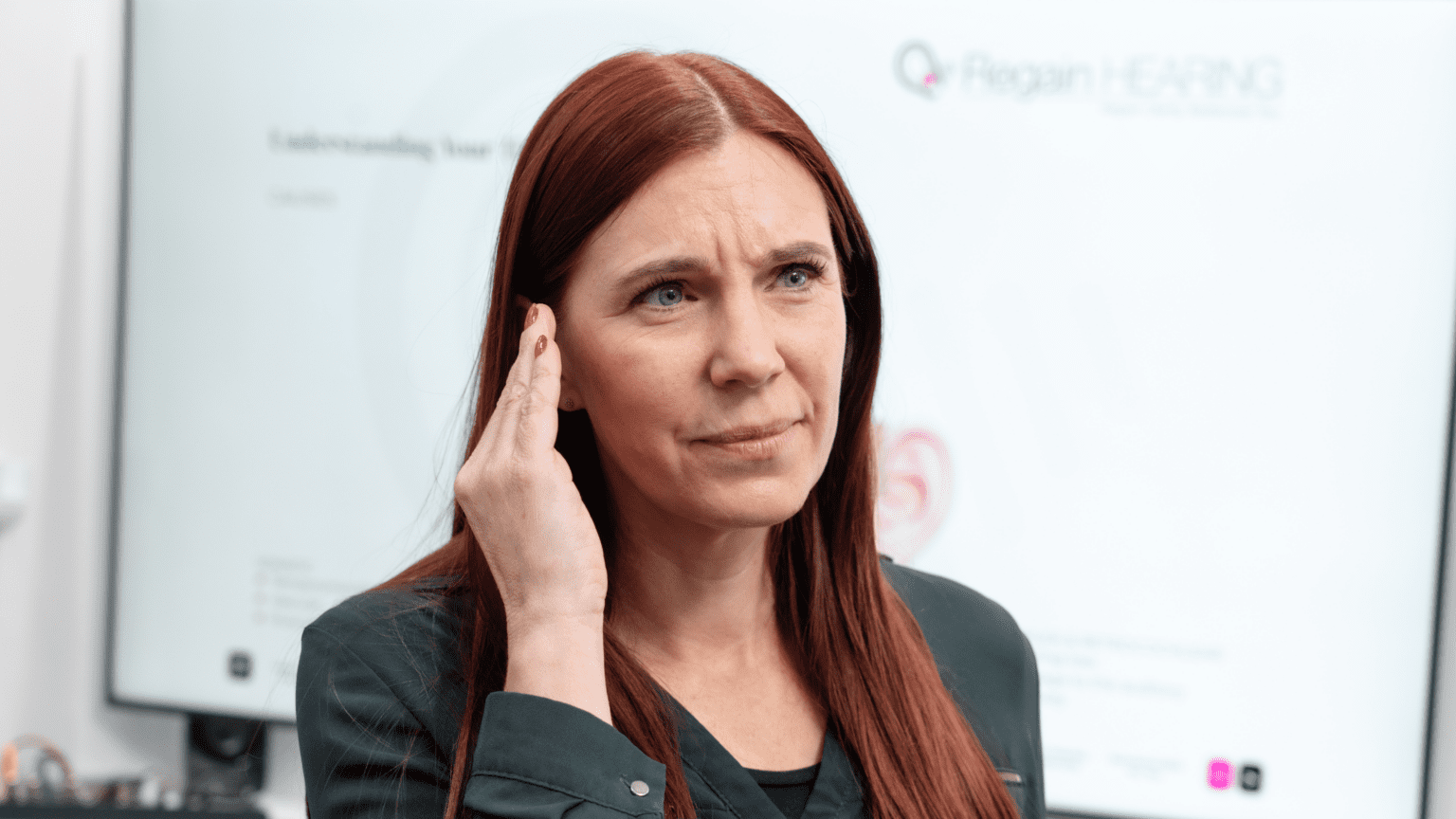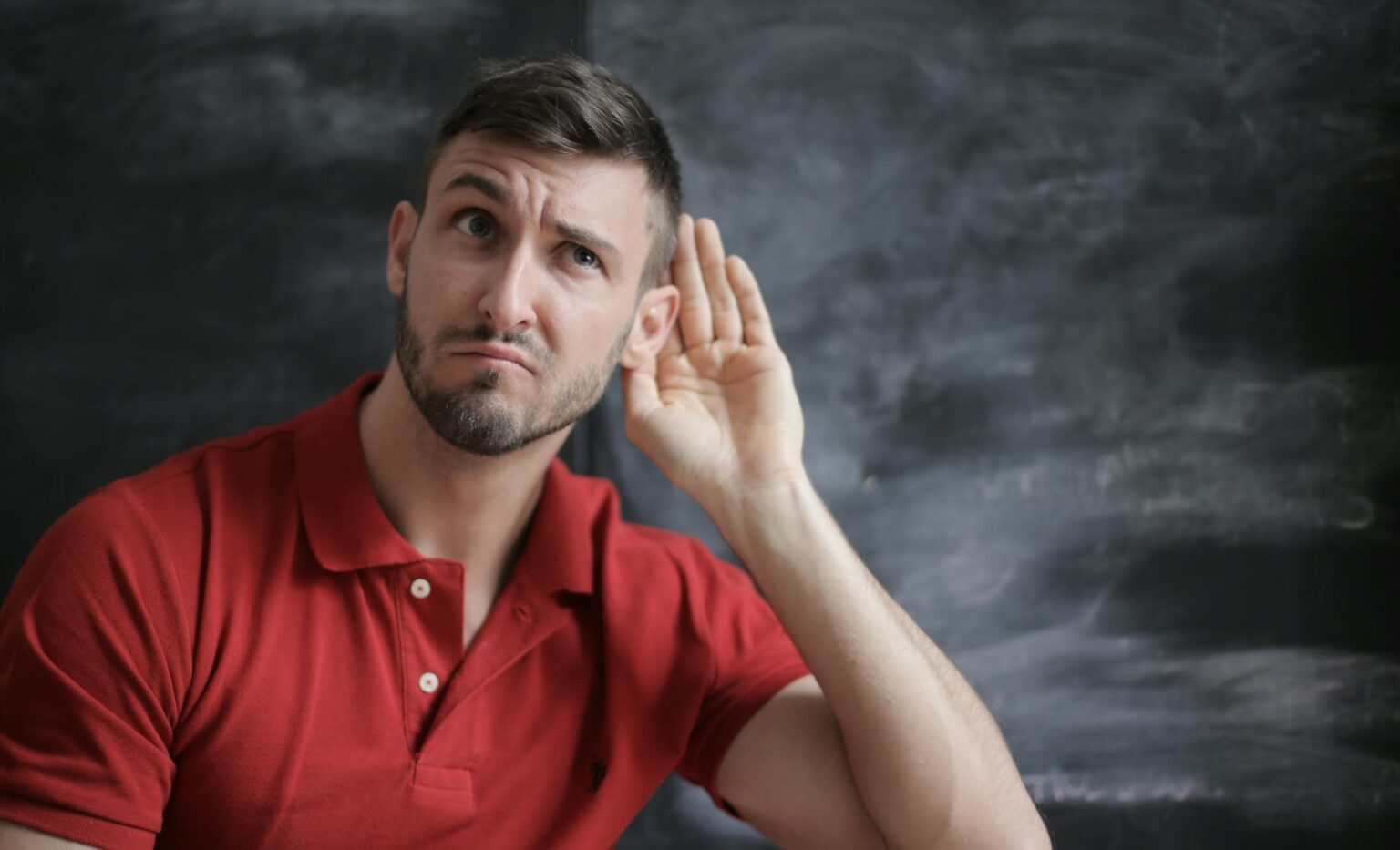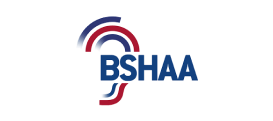If you’re suffering from clogged or blocked ears from too much earwax, you’ll instinctively want to clean them.
It’s tempting to want to reach for the cotton buds — after all, they’re an ideal shape to reach into your ear but don’t give in to this temptation. Cotton buds can harm your ears. Inserting a cotton bud or any other object into your ear can damage the eardrum, ear canal or push earwax further into your ear. This makes it even more difficult to remove and increases the risk of ear infections.
There are better ways to clean your ears without using cotton buds or Q tips. If your ear canal is completely blocked, it’s best to consult your doctor or a hearing specialist. The inner ear is a delicate structure and will require a professional to remove it safely and recommend treatment.
Best Alternatives To Clean Your Ears without Cotton Buds At Home
There are a few ways you can remove earwax without using cotton buds. These effective methods are safer than sticking something in your ear that could damage your inner ear, affecting your hearing.
Medical Grade Olive Oil
Let’s start with a natural home ear cleaning remedy. Olive oil has been found to soften earwax which has hardened in the ear canal, so it comes out easily. Place two to three drops of medical grade olive oil in your ear with a dropper for blocked ears. Do this three to four times per day for three to five days consecutively. It’s recommended that you lie down with your head on one side for a few minutes — allowing the oil to sink in effectively. In the following weeks, you should find the earwax loosening and eventually falling out of your ear.
Warm Damp Cloth
If you’re more focused on removing earwax for cosmetic reasons, this is the safest way to clean your outer ears. Use a warm, damp cloth — placing your finger inside and running around your ear’s curves. You’ll pick up excess earwax or debris effectively without risking damage to your inner ear.
Important: Inserting objects into your ear to clean them is a big no-no. Ear candles, tweezers and syringes can do more harm than good, particularly when you don’t know what you’re doing with them. There is also no medical evidence to suggest that ear candling works.
See an Audiologist to Safely Remove Ear Wax
Although the above methods might help ease the discomfort of earwax build-up, the first point of call should be an ear wax removal specialist. Olive oil only softens the earwax and won’t remove it entirely, while damp cloths aren’t effective for removing ear wax blockages. A hearing specialist can use irrigation or microsuction methods to painlessly and safely remove earwax for clogged ear canals. Find out more about ear wax removal in Maidstone.
Visit an ear clinic and consult an audiologist to determine the cause of your earwax build-up. You’re more at risk of ear infections by inserting objects like cotton buds into your ears to clean them. Damage to the ear canal increases the likelihood of bacterial or fungal infections, leading to an excessive build-up of fluid and ear which can cause hearing loss. You’ll need antibiotic treatment for ear infections as, left untreated, they can lead to a more severe infection of the middle ear.
As with most health issues, it’s best to see to it quickly before it worsens. Seek professional advice as soon as possible if you feel discomfort from blocked ears.
Why do ears need cleaning in the first place?
The body produces earwax, also known as cerumen, to collect and trap dirt and bacteria in your ear. As a self-cleaning agent, removing earwax from your ear isn’t necessary. Inserting a cotton swab or any other object into your ear risks damaging the eardrum or ear canal.
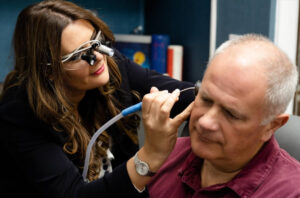
- It traps dirt and dust before it goes too deep inside your ear
- Earwax absorbs dead skin cells
- It prevents the skin inside the ear from drying out
- Cerumen stops infection and bacteria from getting into the inner ear.
Earwax is perfectly natural and useful for the function of the body. But sometimes, earwax can build-up, causing discomfort. Excessive earwax build-up is known medically as Ceruminosis and can entirely or partially block up the ear canal.
There are a few ways you can clean your ears responsibly at home without using cotton buds that will ease the unpleasant feeling of a clogged ear.
Why are cotton buds bad for your ears?
It’s tempting to want to reach for the cotton buds — after all, they’re an ideal shape to reach into your ear but don’t give in to this temptation. Cotton buds can harm your ears. Inserting a cotton bud or any other object into your ear can damage the eardrum, ear canal or push earwax further into your ear. This makes it even more difficult to remove and increases the risk of ear infections.
When Q tips are pushed into your ears too forcefully, they can cause abrasion, cuts, scratches, bleeding, which can damage your inner nerves and produce chronic pain. Nearly 90% of Brits use them incorrectly according to this study too.
There are better ways to clean your ears without using cotton buds, as mentioned above. If your ear canal is completely blocked, it’s best to consult your doctor or a hearing specialist. The inner ear is a delicate structure and will require a professional to remove it safely and recommend treatment.
What do our audiologists say?
“Ear health is a crucial aspect of overall wellbeing, and the manner in which we clean our ears plays a significant role in this. The inner ear is delicate, and the tympanic membrane, or eardrum, is especially sensitive. Using cotton swabs or sharp objects for ear cleaning can inadvertently push wax deeper into the ear canal, leading to blockages, or worse, cause perforations in the eardrum. Such actions can disrupt the natural process of earwax migration and removal, potentially leading to infections or hearing loss.”
Lindsay Fletcher (nee Stride) (RHAD), (BSHAA), FdA
Proper Ear Hygiene Practices
Prevention is better than the cure with ears too. Adopting good ear hygiene practices is essential, in addition to knowing how to clean your ears safely. Steer clear of behaviours that could cause foreign things to get inside your ears, like excessive finger ear digging or long-term use of earplugs without routine ear cleaning.
In addition, shielding your ears from loud noises, wearing ear protection when needed, and getting medical help right away if you feel uncomfortable or notice changes in your hearing are all important aspects of preserving overall ear health.
Ear Cleaning FAQs
-
Should you use cotton buds in your ears?
No, you should not use cotton buds in your ears. While it may seem like they help clean earwax, they can actually push it deeper into the ear canal, leading to blockages, infections, and even potential damage to the eardrum. If you feel like you have excess wax, it’s best to use ear drops, irrigation kits, or consult a healthcare professional.
-
How often should I clean my ears?
Your ears are self-cleaning, and in most cases, they do not require regular cleaning. The production of earwax is a natural process that helps protect your ears from dust, dirt, and bacteria. However, if you experience excessive earwax buildup, discomfort, or changes in hearing, it’s advisable to seek guidance from a healthcare professional who can assess your situation and recommend appropriate ear care practices.
-
What should I do if I suspect I have a blockage or impaction of earwax?
If you suspect you have a blockage or impaction of earwax, it’s essential to seek guidance from a healthcare professional, such as an audiologist or an ear, nose, and throat (ENT) specialist.
-
Are there any warning signs that indicate I should see a healthcare professional for ear cleaning?
Yes, several warning signs suggest you should seek medical attention for ear cleaning. These include sudden or significant changes in hearing, persistent ear pain or discomfort, a feeling of fullness or blockage in the ear, ringing or whooshing sounds in the ears (tinnitus), or drainage or discharge from the ear.
Regain Hearing offers effective earwax removal services like irrigation and microsuction. Improve your inner ear health and book a consultation with one of our professionals.

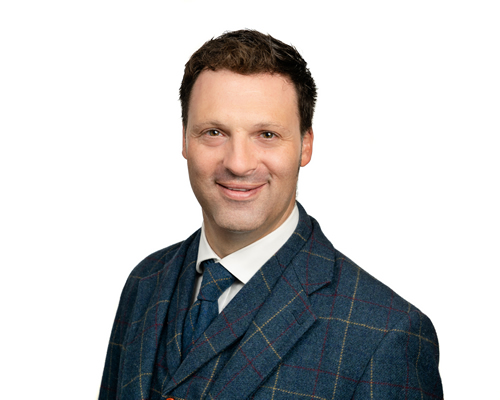

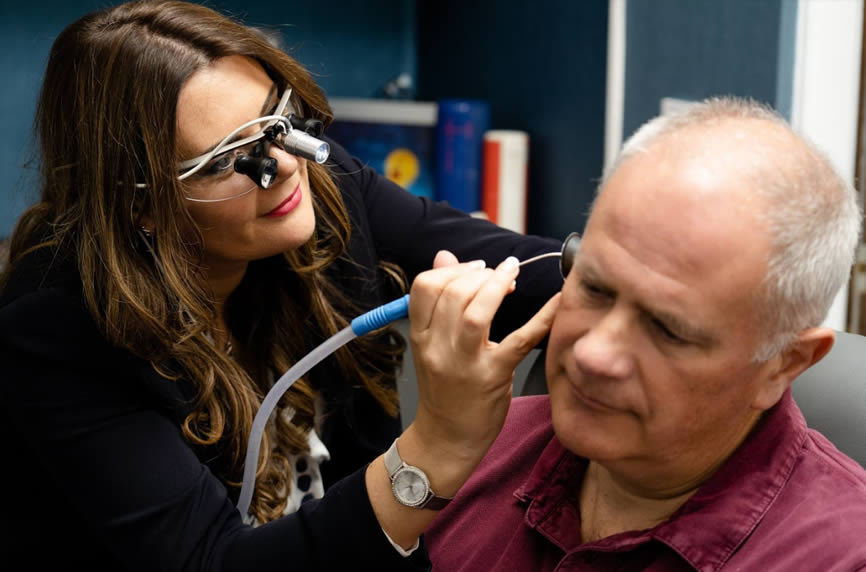
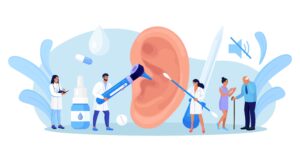
 “Ear health is a crucial aspect of overall wellbeing, and the manner in which we clean our ears plays a significant role in this. The inner ear is delicate, and the tympanic membrane, or eardrum, is especially sensitive. Using cotton swabs or sharp objects for ear cleaning can inadvertently push wax deeper into the ear canal, leading to blockages, or worse, cause perforations in the eardrum. Such actions can disrupt the natural process of earwax migration and removal, potentially leading to infections or hearing loss.”
“Ear health is a crucial aspect of overall wellbeing, and the manner in which we clean our ears plays a significant role in this. The inner ear is delicate, and the tympanic membrane, or eardrum, is especially sensitive. Using cotton swabs or sharp objects for ear cleaning can inadvertently push wax deeper into the ear canal, leading to blockages, or worse, cause perforations in the eardrum. Such actions can disrupt the natural process of earwax migration and removal, potentially leading to infections or hearing loss.”
